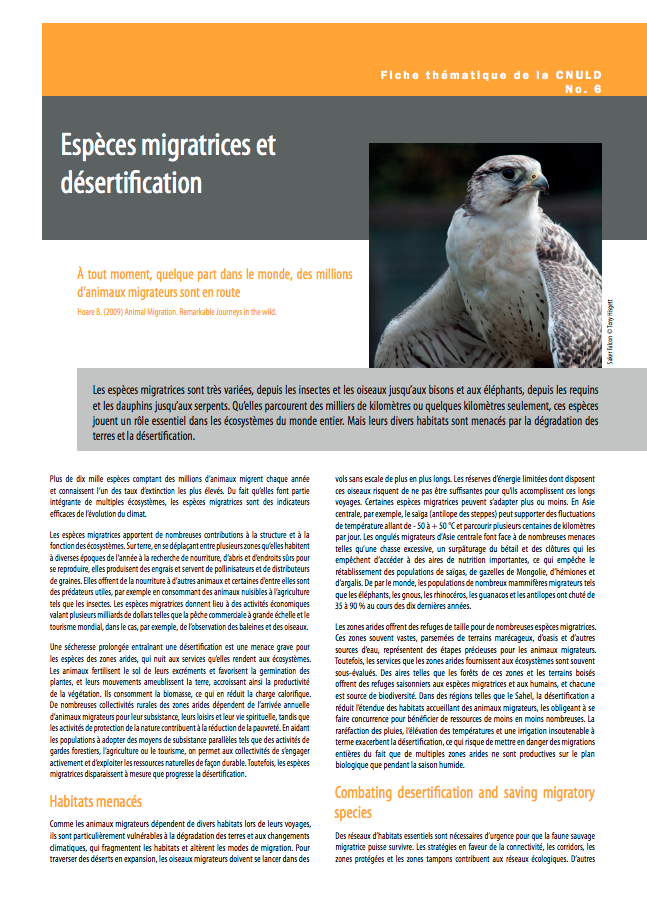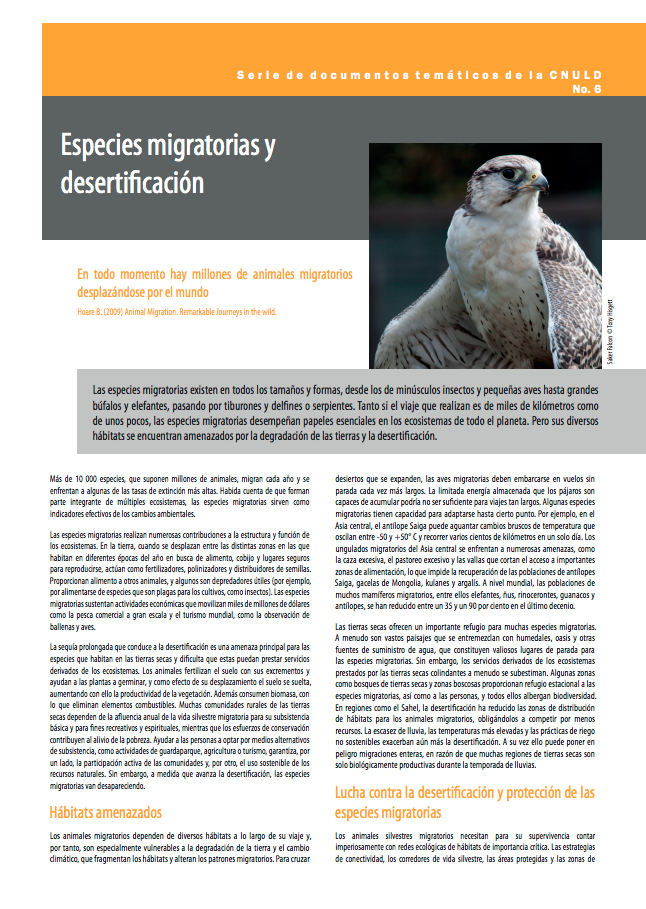Espèces migratrices et désertification
Les espèces migratrices sont très variées, depuis les insectes et les oiseaux jusqu’aux bisons et aux éléphants, depuis les requins et les dauphins jusqu’aux serpents. Qu’elles parcourent des milliers de kilomètres ou quelques kilomètres seulement, ces espèces jouent un rôle essentiel dans les écosystèmes du monde entier. Mais leurs divers habitats sont menacés par la dégradation des terres et la désertification.




